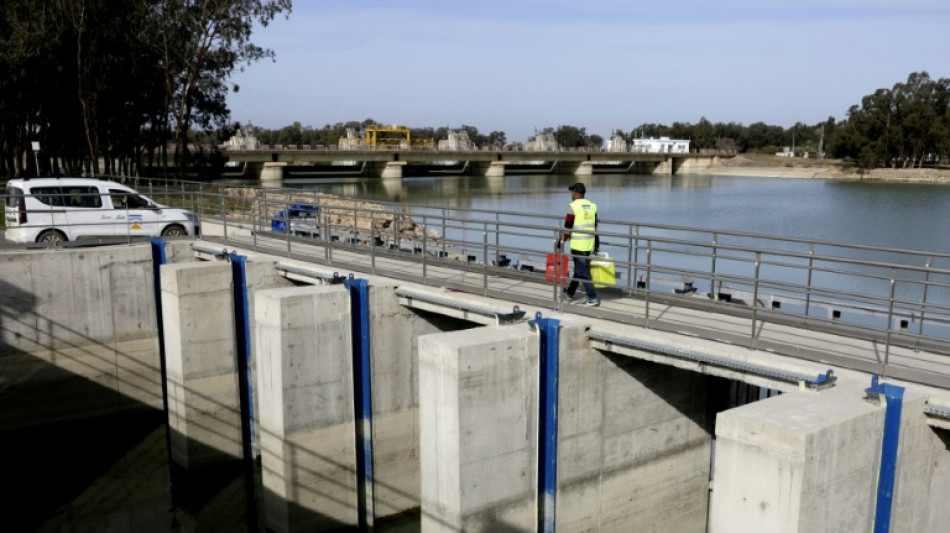
-
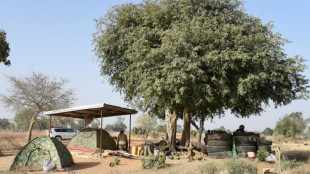 Togo tight-lipped as Burkina jihadists infiltrate north
Togo tight-lipped as Burkina jihadists infiltrate north
-
Survivors claw through rubble after deadly Pakistan cloudburst
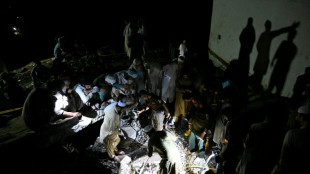
-
 South Africa quick Rabada out of Australia ODI series with injury
South Africa quick Rabada out of Australia ODI series with injury
-
Air Canada flight attendants vow to defy back-to-work order as strike talks resume
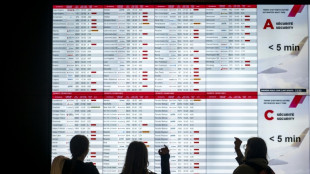
-
 'Call of Duty' to fire starting gun at Gamescom trade show
'Call of Duty' to fire starting gun at Gamescom trade show
-
UN says record 383 aid workers killed in 2024
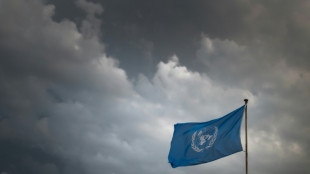
-
 NYC Legionnaires' disease outbreak kills 5
NYC Legionnaires' disease outbreak kills 5
-
Asian markets cautious after Zelensky-Trump talks
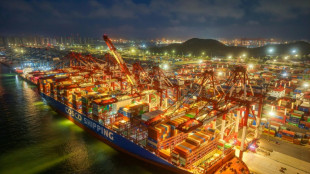
-
 Home hero Piastri to have Australian F1 grandstand named after him
Home hero Piastri to have Australian F1 grandstand named after him
-
Maduro says mobilizing millions of militia after US 'threats'

-
 HK scientist puts hope in nest boxes to save endangered cockatoos
HK scientist puts hope in nest boxes to save endangered cockatoos
-
Swiatek beats Paolini to clinch WTA Cincinnati Open title

-
 Brazil's top court rules US laws do not apply to its territory
Brazil's top court rules US laws do not apply to its territory
-
Suits you: 'Fabulous' Zelensky outfit wows Trump

-
 Pro-Trump outlet to pay $67 mn in voting defamation case
Pro-Trump outlet to pay $67 mn in voting defamation case
-
Downton Abbey fans pay homage to 'beautiful' props before finale

-
 Republican-led states sending hundreds of troops to US capital
Republican-led states sending hundreds of troops to US capital
-
Putin and Zelensky set for peace summit after Trump talks
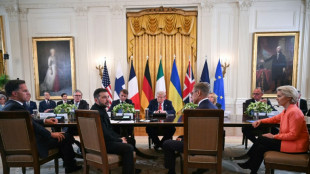
-
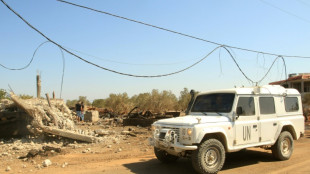 UN debates future withdrawal of Lebanon peacekeeping force
UN debates future withdrawal of Lebanon peacekeeping force
-
Trump says arranging Putin-Zelensky peace summit
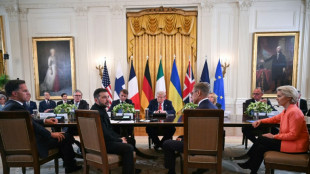
-
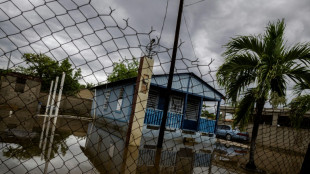 Hurricane Erin douses Caribbean, menaces US coast
Hurricane Erin douses Caribbean, menaces US coast
-
Sinner vows to play US Open after Cincy retirement

-
 'Ketamine Queen' dealer to plead guilty over Matthew Perry death
'Ketamine Queen' dealer to plead guilty over Matthew Perry death
-
Leeds beat Everton for perfect start to Premier League return

-
 'Ketamine Queen' to plead guilty over drugs that killed Matthew Perry
'Ketamine Queen' to plead guilty over drugs that killed Matthew Perry
-
Guirassy sends struggling Dortmund past Essen in German Cup

-
 Stocks under pressure as Zelensky-Trump talks underway
Stocks under pressure as Zelensky-Trump talks underway
-
Alcaraz wins Cincinnati Open as Sinner retires

-
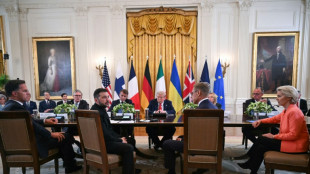 Trump floats Ukraine security pledges in talks with Zelensky and Europeans
Trump floats Ukraine security pledges in talks with Zelensky and Europeans
-
Doak joins Bournemouth as Liverpool exodus grows

-
 Excessive force used against LA protesters: rights group
Excessive force used against LA protesters: rights group
-
Panama hopes to secure return of US banana giant Chiquita
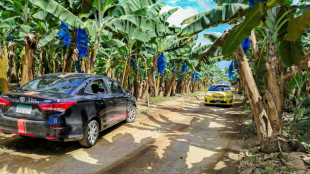
-
 'Things will improve': Bolivians look forward to right's return
'Things will improve': Bolivians look forward to right's return
-
Trump welcomes Zelensky with fresh optimism on peace deal

-
 Israeli controls choke Gaza relief at Egypt border, say aid workers
Israeli controls choke Gaza relief at Egypt border, say aid workers
-
Air Canada flight attendants vow to defy latest back-to-work order
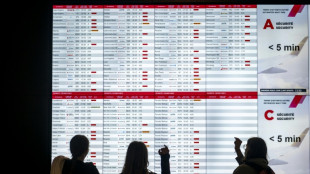
-
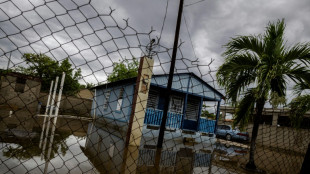 Hurricane Erin drenches Caribbean islands, threatens US coast
Hurricane Erin drenches Caribbean islands, threatens US coast
-
Europeans arrive for high-stakes Trump and Zelensky talks

-
 Trump, Zelensky and Europeans meet in bid to resolve split over Russia
Trump, Zelensky and Europeans meet in bid to resolve split over Russia
-
Hamas accepts new Gaza truce plan: Hamas official
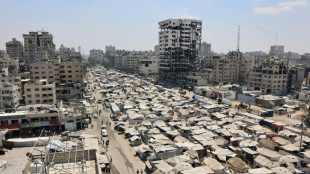
-
 Stocks under pressure ahead of Zelensky-Trump talks
Stocks under pressure ahead of Zelensky-Trump talks
-
Russian attacks kill 14 in Ukraine ahead of Trump-Zelensky talks

-
 Lassana Diarra seeks 65 mn euros from FIFA and Belgian FA in transfer case
Lassana Diarra seeks 65 mn euros from FIFA and Belgian FA in transfer case
-
Air Canada flight attendants face new pressure to end strike
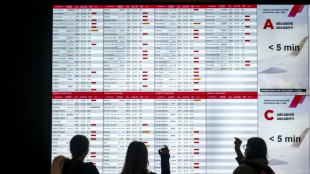
-
 Alonso says 'no excuses' as Real Madrid prepare for La Liga opener
Alonso says 'no excuses' as Real Madrid prepare for La Liga opener
-
Deadly wildfires rage across Spain as record area of land burnt

-
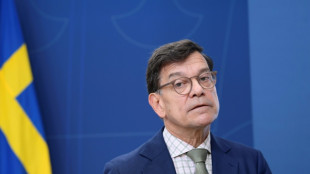 Swedish ex-govt adviser goes on trial over mislaid documents
Swedish ex-govt adviser goes on trial over mislaid documents
-
Injured Springboks captain Kolisi out for four weeks

-
 Irish literary star Sally Rooney pledges UK TV fees to banned pro-Palestine group
Irish literary star Sally Rooney pledges UK TV fees to banned pro-Palestine group
-
Stocks mixed ahead of Trump-Zelensky talks


Morocco 'water highway' averts crisis in big cities but doubts over sustainability
Morocco is spending hundreds of millions of dollars on tapping northern rivers to supply water to parched cities farther south but experts question the sustainability of the project in the face of climate change.
The North African kingdom has spent $728 million so far on what it dubs a "water highway" to redirect the surplus flow of the Sebou River to meet the drinking water needs of capital Rabat and economic hub Casablanca, according to official figures.
In the future, it plans to tap other northern rivers to extend the project to the southern city of Marrakesh.
Officials say the project has been a success in heading off the immediate threat to the water supply of the country's most populous region.
"Transferring surplus water from the Sebou basin in the north allowed us to prevent about 12 million people from running out of water," said senior agriculture ministry official Mahjoub Lahrache.
In late 2023, the capital Rabat and its surrounding region came perilously close to running out of water when the main reservoir supplying the city ran dry.
Morocco has long suffered from extreme disparities in rainfall between the Atlas mountain ranges and the semi-arid and desert regions farther south.
"Fifty-three percent of rainfall occurs in just seven percent of the national territory," Water Minister Nizar Baraka told AFP.
In the past, rainfall in the Atlas ranges has created sufficient surplus flow on most northern rivers for them to reach the ocean even in the driest months of the year.
It is those surpluses that the "water highway" project seeks to tap.
A diversion dam has been built in the city of Kenitra, just inland from the Atlantic coast, to hold back the flow of the Sebou River before it enters the ocean.
The water is then treated and transported along a 67-kilometre (42-mile) underground canal to supply residents of Rabat and Casablanca.
Inaugurated last August, the "water highway" had supplied more than 700 million cubic metres (24.7 billion cubic feet) of drinking water to the two urban areas by early March, according to official figures.
But experts question how long the Sebou and other northern rivers will continue to generate water surpluses that can be tapped.
- Six-year drought -
The kingdom already suffers from significant water stress after six straight years of drought.
Annual water supply has dropped from an average of 18 billion cubic metres in the 1980s to just five billion today, according to official figures.
Despite heavy rains in the northwest in early March, Morocco remains in the grip of drought with rainfall 75 percent below historical averages.
The dry spell has been "the longest in the country's history", the water minister said, noting that previous dry cycles typically lasted three years at most.
Rising temperatures -- up 1.8 degrees Celsius last year alone -- have intensified evaporation.
Experts say that climate change is likely to see further reductions in rainfall, concentrated in the very areas from which the "water highway" is designed to tap surplus flows.
"Future scenarios indicate that northern water basins will be significantly more affected by climate change than those in the south over the next 60 years," said water and climate researcher Nabil El Mocayd.
"What is considered surplus today may no longer exist in the future due to this growing deficit," he added, referencing a 2020 study in which he recommended scaling back the "water highway".
Demand for water for irrigation also remains high in Morocco, where the farm sector employs nearly a third of the workforce.
Researcher Abderrahim Handouf said more needed to be done to help farmers adopt water-efficient irrigation techniques.
Handouf said the "water highway" was "an effective solution in the absence of alternatives" but warned that climate challenges will inevitably "create problems even in the north".
"We must remain cautious," he said, calling for greater investment in desalination plants to provide drinking water to the big cities.
H.Jarrar--SF-PST
